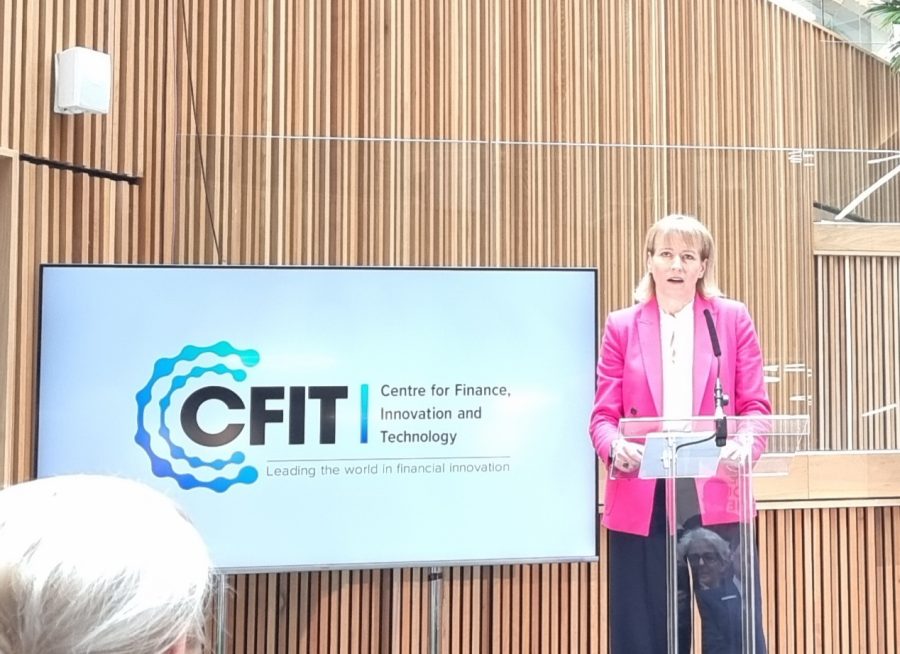The Centre for Finance, Innovation and Technology (CFIT), backed by HM Treasury and the City of London Corporation, launched in Leeds this week with a mission to boost the fintech sector’s growth and help it to achieve ‘truly global scale’.
The establishment of CFIT is a direct response to recommendations outlined in the Kalifa Review of UK Fintech, published two years ago. With a £5.5million backing, the new body intends on driving dominance of the UK’s fintech sector. It’s a sector that currently supports around 2,500 firms, tens of thousands of UK, and is second globally only to the US for fintech investment.
CFIT, which launched at the Nexus Leeds building, brings together time-limited ‘coalitions’ of experts from finance, technology, academia and policy-making to identify and remove barriers to fintech sector growth.
The work of the coalitions will focus on tangible outputs that will make a “real difference to businesses and consumers across the UK”.
But what else did we learn about CFIT. Here’s our FIVE takeaways from this week’s launch.
1 – CFIT is the ‘start of something new’

“In the last three decades, we’ve seen incredible technology developments that have revolutionised how we learn, how we communicate, and – for all of us – how we manage our money,” said Andrew Griffith, Economic Secretary to the Treasury.
“So we’ve got an awful lot to be proud of. It’s a moment of celebration. It’s a first birthday. And, it’s also the start of something new. But it’s also a reminder that we can’t realise the benefits of innovation by looking at or dining out on past glories.
“That’s why we’re acting today to build on our strengths by launching a new national fintech centre, and it shows what we really mean it when we say fintech is central to the government’s vision for the future of UK financial services sector – one that sits at the heart of technology and innovation.”
2 – CFIT will ‘break down barriers’
CFIT will “enable us to come together as a sector to start breaking down barriers that the fintech sector is facing while creating a clear path for our homegrown fintech companies to achieve global scale, impact and success”, says Charlotte Crosswell OBE, chair of CFIT.
Crosswell, the former CEO of Innovate Finance and chair and trustee of Open Banking, has worked closely with entrepreneurs, financial services firms, government as well as regulators on fintech advocacy and strategy.
“Our task is to bring key stakeholders together. We will work with the UK Government and devolved administrations to inform policy development and long-term strategies, and naturally join existing fintech players, such as the International FinTech Group and Innovate Finance, for their insights and input. Exciting and long lasting developments will arise from our work, including the creation of innovation hubs and collaboration with universities, further education colleges and schools.”

3 – CIFT will be ‘data-driven, policy and research-led’
The work of the coalitions will be research-led and data-driven, with a focus on tangible outputs that will make a real difference to businesses and consumers across the UK. It will be an approach that is “agile, innovative, open, and timebound”.
Crosswell told The Fintech Times: “This is about driving things forward. Identifying an issue, identifying the use case, getting the data, the evidence and governance around it, and then going out and helping to solve it. A large part of our team will be research focused and project focused.
“We’re not here to be networking events. We’re trying to solve issues and see what’s needed and what’s going to be the impact of any work. Things have to be action focused and focused on delivery and bringing the right people together to make sure that happens.”
4 – Ezechi Britton MBE is still not officially the CEO of CFIT
In early February, CFIT named Ezechi Britton MBE as its inaugural chief executive. However, his new role isn’t expected to start until April.
During his speech at the event, he made it clear that he still only goes by the title ‘CEO-elect’.
Britton joked: “I am addressing you all today as CFIT CEO. I do hope my position is confirmed at the end of April.”
However, he confirmed that his strategic goal and plans as “a prospective CEO” will be fivefold:
- Enhancing skills and talents across the UK
- Encouraging investment in UK fintech
- Delivering national connectivity for ideas and education
- Ensuring the progressive policy and regulatory requirements
- Driving international attractiveness of UK fintech

5 – Working with universities is a way to drive growth
CFIT’s plan is to work with leading universities to give students the opportunity to participate in placements at the UK’s leading companies operating in the financial innovation sector.
“CFIT will continue the fintech sector’s work with colleges and universities to give students from diverse backgrounds the opportunity to participate in placements with the UK’s leading companies operating in the financial innovation sector and to start this programme, said Crosswell. “I’m delighted that we’ve already received support from the Centre for Financial Technology and Innovation here at the University of Leeds, the Leeds Business School and Leeds Beckett University.
“We will also partner with fintech networks at universities across the UK on private placements. These placements will act as a platform for nurturing and developing fresh talent in the fintech industry, creating a pipeline of skilled workers.”

Atom’s experience
Edward Twiddy, co-founder at Atom bank, also extolled the power of working with universities.
“We were one of the first app-only banks in the UK and we made some dreadful mistakes, technology wise, early doors,” he said. “But we’d have now had a record year in terms of income and a record year in terms of growth.
“There’s a few important choices we made along the way. When we started we decided we would optimise everything. So before we had a licence, we built a digital twin, so that we could consult that digital twin on how to use that scarce and expensive capital that we were raising at every turn.
“We did that with the maths department in Durham University and they’ve been a huge partner for us ever since. And we continue to develop PhDs through that department and we continue to run knowledge transfer partnerships with them and to build centres for training.
“We spin in towards education and it’s fundamental to us. We’ve learnt huge amounts from that experience with research intensive colleagues in Durham and Newcastle universities. But you can’t lean in, unless you’ve got some friends. If we get a competition policy agenda right, then the UK will be the only place to do the UK innovation, because fintech will be at the head of that.”




